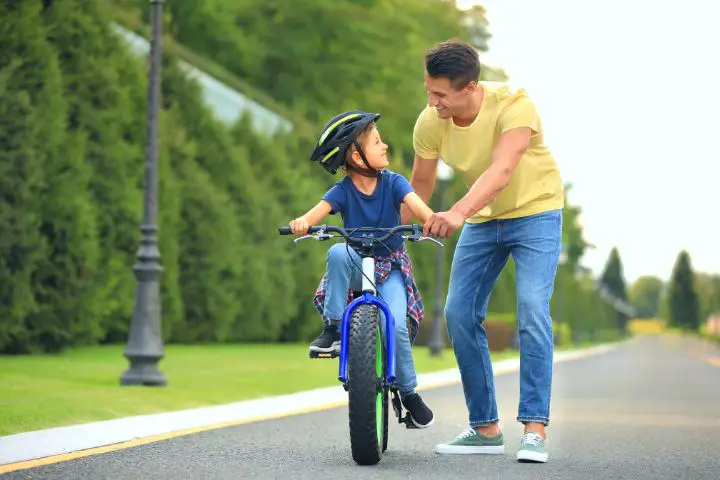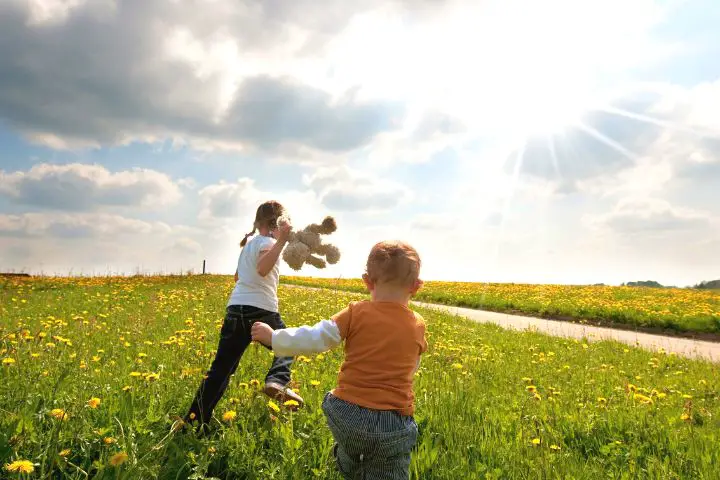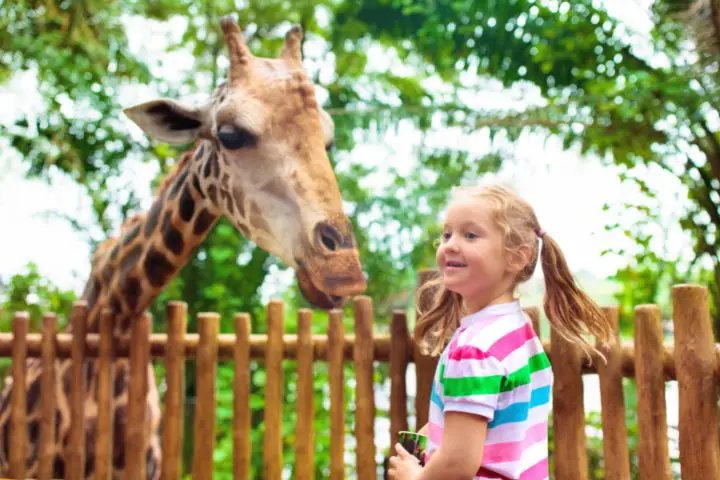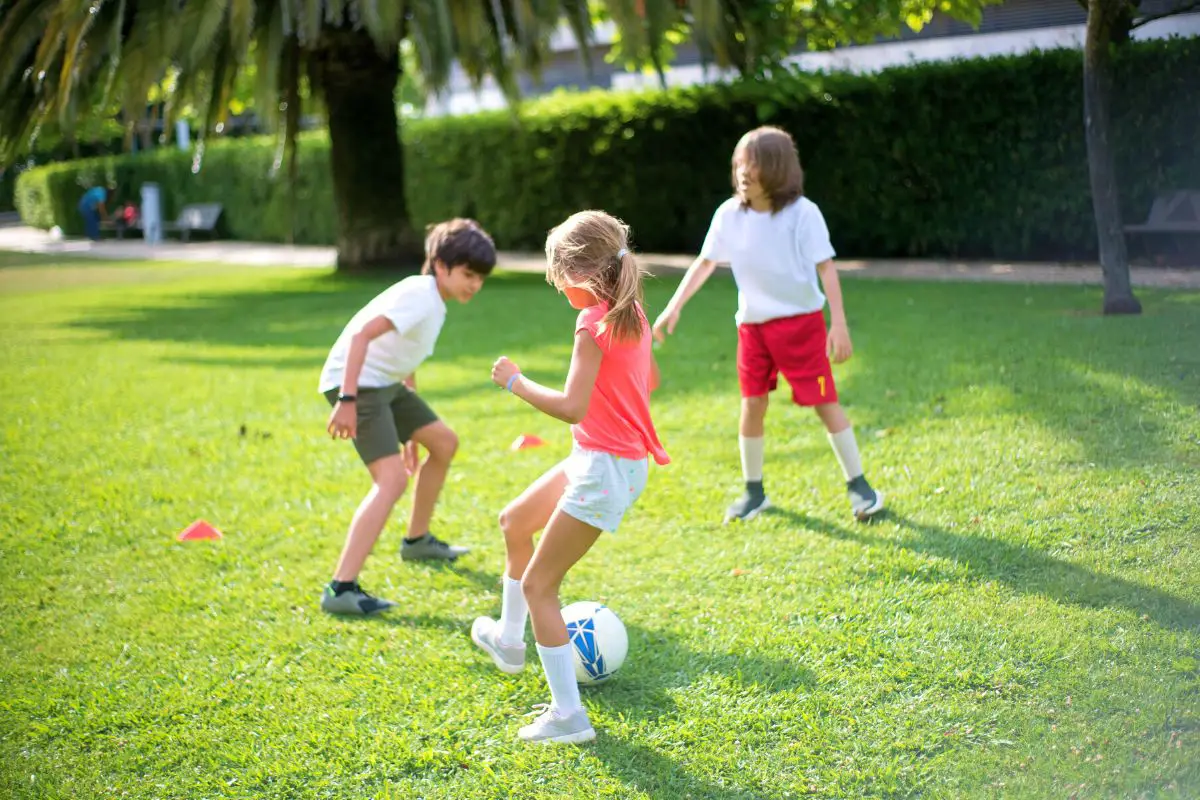The Benefits of Outdoor Activities for Our Children’s Mental Health
Did you know that most children nowadays spend around 7.5 hours on average in front of their digital screens for entertainment? This data doesn’t yet include the time they spend on laptops or computers in school for learning and educational purposes. Unfortunately, too much usage of these digital devices can harm one’s health.
According to resources, too much screen time can:
- Boost your children’s risk of obesity due to a sedentary lifestyle
- Impact your children’s sleep quality at night
- Increase your children’s exposure to bad or harmful habits
- Negatively impact their mental health
Although I too am guilty of letting my kids to their ‘own devices’, it’s important to keep in mind that, as parents or guardians, it’s our responsibility to look after our children’s health and welfare, including minimizing their usage of digital devices.
One way to help minimize their screen time is to encourage them to engage in more outdoor activities. From gardening to sand play, the benefits of playing outdoors are enormous.
Why outdoors?
It can be difficult to step outside or do anything outdoors, considering that almost everything is accessible with technology. For children, playing and connecting with their friends can be done online. But if there’s one thing that technology can never replace, it’s the benefits of going outdoors and spending time with nature. The outdoors or nature can provide your body and mental health countless benefits you’ll never get by staying indoors.
Thus, if you want your kids to grow healthy, happy, and well-rounded, you can take them outside, closer to nature. Increasing your children’s time outdoors can help them stay away from their digital devices and focus more on their general health.
If you’re struggling to break your child’s habit of using digital devices, you may consider seeking help from care management organizations like a CMO in New Jersey or others in your area. Through this, your child can get face-to-face and personalized care management depending on their most complex needs, such as minimizing digital device usage or exposure in their daily lifestyle.

How do outdoor activities benefit your children’s mental health?
Although your kids may be busy with their school-related duties and responsibilities, encouraging them to do outdoor activities can significantly benefit their mental health. The following benefits listed below are worth reflecting on:
1. Reduce the risk of developing mental health problems
In recent years, the case of children suffering from mental health illnesses has increased. As reported by some resources, around 4.4% of children aged 3-17 years old are diagnosed with depression, while 9.4% have anxiety. These numbers are bound to increase if children continue using their digital devices instead of focusing on their mental well-being.
But when kids engage in outdoor activities, it can help them break away from their devices and be more exposed to fresh air and greenery. A study shows that engaging in outdoor activities and being more in contact with nature can help improve mental health and reduce your child’s risk of developing mental health issues.
2. Relieve stress and fatigue
Like adults, children can also experience fatigue and stress. There are several reasons children can feel extremely tired and stressed, such as:
- Frequently staying up late due to homework or usage of digital devices
- Anemia
- Mental health problems
One way to relieve your child’s fatigue and stress is by letting them engage in outdoor activities. Simple activities like biking outdoors, picking up leaves, playing sandboxes, or walking the dog is enough to help them mentally relax, reduce their stress levels, and refresh their brains.
Thus, keep a closer eye on your child’s physical symptoms or complaints. Do they always complain about their overwhelming schoolwork? Do they stay up late every night because of their phones or laptops? Do they always wake up tired or complain of pain around their body? Your child may be experiencing stress and fatigue, which is a strong sign to engage them more in outdoor activities.

3. Boost happiness
Perhaps you’ve heard from several studies or research how digging in the dirt can make you happier and lift your spirits. The same is true for your kids when they engage in outdoor activities. Being outdoors playing in the dirt is known to boost the serotonin levels in your child’s brain, improving their moods and making them more resilient to stress.
Another source also states that dirt or soil contains friendly bacteria called Mycobacterium vaccae (M. Vaccae). It’s a type of bacteria naturally present in the soil. When your kids come into contact with this bacterium, it stimulates serotonin production, which can help your kids feel relaxed and happier. Plus, while your kids are playing with dirt, they’re also getting more exposure to natural light, which is known to relieve stress.
So, don’t let them believe that playing with dirt is bad, as this might discourage them from playing outdoors. The next time your kids ask your permission to play with dirt outdoors, let them. You can tell them to take a bath or thoroughly wash their hands after playing outdoors, so they don’t get to eat any dirt from their hands.
4. Reduce anxiety
Another wonderful mental health benefit of letting your children play outdoors is it reduces anxiety. According to a study, nature-based or outdoor activities like playing, exercising, or gardening can help reduce anxiety, including in children. Any 20- to 90-minute activity done in a natural outdoor environment is helpful in reducing the cortisol levels of your child’s brain, improving their general mental health.
5. Increase their Vitamin D
Vitamin D is essential for your child’s mental health, just as it is for their physical health. According to research, adults and kids deficient in Vitamin D are much more prone to experience depression-like symptoms. Letting your children do more outdoor activities can be a great way to increase their exposure to sunlight which is a good source of Vitamin D, improving their mental health.
Thus, if the sun is up and the weather is fine, invite your kids to play outdoors to soak up some Vitamin D for their bodies and brains. Don’t forget to apply sunscreen on their bodies and monitor the time they spend outside under the sun. Remember, too much sunlight can damage their skin. Even 10 to 15 minutes of sun exposure is enough for your kids to absorb their daily dose of Vitamin D. If you intend to stay under the sun for longer than 15 minutes, reapply their sunscreen every 30 to 90 minutes.

6. Aid with brain development
When you let kids play outdoors, they tend to invent their own games, make their own rules, and explore their surroundings for any props. Letting them play outdoors allows them to become independent and self-reliant, which is crucial in aiding their brain development. It also allows them to unleash all their creative ideas, which helps develop their organizational abilities and decision-making skills. More importantly, as your kids play outdoors with other children, the experience itself teaches them the importance of following rules and respecting others.
7. Nurture relationships
One of the most important parts of outdoor play is interaction. Joining outdoor activities can help your child interact and nurture real relationships with their friends, relatives, or family. Simple interactions like running, catching, shouting, and laughing can enhance your child’s emotional stability and strengthen their social skills.
An emotionally stable child is more capable of managing stressful situations. In contrast, kids who don’t have stable relationships with anyone are more at risk of developing chronic stress and other mental health issues in the future.
How Do You Encourage Your Children to Go Outdoors?
There’s no right or wrong on how your children will spend their time outdoors. Reality is any family friendly outdoor activity will help to achieve the benefits listed above. But if you’re unsure where to start or how to get your kids to go outside, the following tips may help you get started:
- Limit their screen time
Too much usage of their digital devices is one of the main culprits your children are no longer interested in going outside. Considering that they can have fun with their phones or chat with their friends, they won’t see any point in going outside. So, instead of letting them use their devices nonstop, limit them to one to two hours a day. The less time they have with their phones, the more they’ll realize how spending time outdoors is much better than staying indoors fiddling with their gadgets.
- Get them interested in wildlife or birdwatching

If you’re having trouble taking their attention off their devices, perhaps you can start small. For example, try to get them interested in wildlife or birds and teach them to search for these animals on the internet. As they become more engaged with the wildlife photos, they may be interested in exploring the outdoors and seeing these species in real life. From there, you can take them outdoors to go birdwatching or wildlife watching at local parks, safaris, or other areas.
- Plan outdoor family time
Instead of letting your kids go outdoors alone, why not go outside as a family and reap the benefits together? You can schedule an outdoor family time and make this a habit for you and your kids to stick by. For example, you can take your weekend lunches outdoors or bring your kids with you daily when you walk your dog. Or make it a weekly routine to visit different playgrounds on weekends or go camping with the family once a month.
Key Takeaway
Outdoors is where your kids can be their most authentic and creative selves. The freedom they feel from engaging in outdoor activities can bring numerous benefits to their mental health that no other alternative could. Thus, when it comes to promoting your children’s mental health, look no further and help them go back to nature for more opportunities for outdoor activities.






